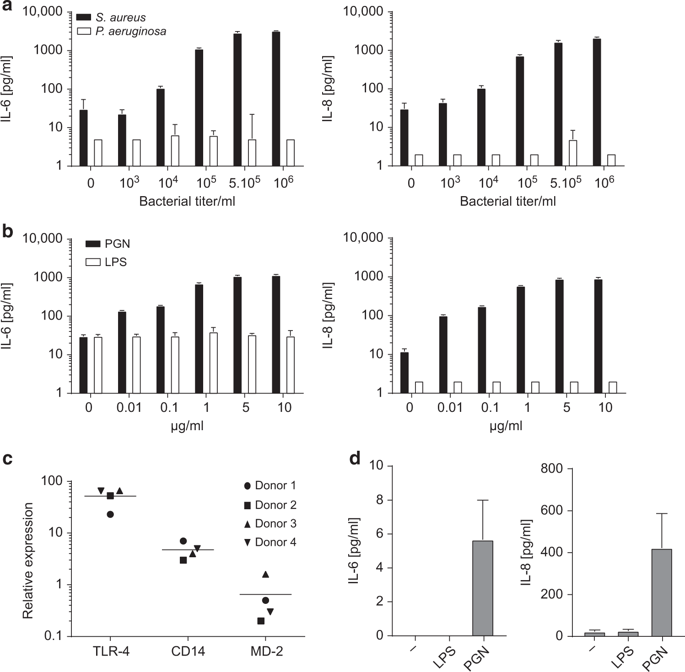Mucosal Immunology ( IF 8 ) Pub Date : 2019-01-21 , DOI: 10.1038/s41385-018-0129-x K Golebski 1, 2 , W Hoepel 1, 3 , D van Egmond 2 , E J de Groot 2 , G D Amatngalim 4, 5 , J M Beekman 4, 5 , W J Fokkens 2 , C M van Drunen 2 , J den Dunnen 1, 3

|
The nasal cavity displays immune tolerance to commensal bacteria under homeostatic conditions, which is rapidly converted to a pro-inflammatory response upon infection. Yet, the factors that control this conversion are still largely unknown. Here, we provide evidence that Fc gamma receptor III (FcγRIII) stimulation breaks immune tolerance to bacteria in the human nasal cavity through activation of nasal epithelial cells, which are the first line of defense against invading microbes. While under steady-state conditions human nasal epithelial cells were completely non-responsive to Gram-negative bacteria P. aeruginosa or TLR4 ligand LPS, IgG opsonization of bacteria, as occurs upon infection, strongly induced production of pro-inflammatory agents such as IL-6 and IL-8. This breaking of tolerance to bacteria was completely dependent on FcγRIII, which amplified cytokine gene transcription through cross-talk with TLR4. In addition, we identified that epithelial cells from patients suffering from chronic rhinosinusitis with nasal polyps do not display LPS tolerance, thereby providing an explanation for the disturbed host defense responses of these patients. Taken together, these data are the first to identify FcγR expression on nasal epithelial cells, as well as to identify its important role in controlling the balance between tolerance and inflammation in the nasal cavity.
中文翻译:

FcγRIII 刺激通过与 TLR4 的串扰破坏人鼻上皮细胞对细菌的耐受性
鼻腔在稳态条件下对共生细菌表现出免疫耐受性,在感染后会迅速转化为促炎反应。然而,控制这种转化的因素在很大程度上仍然是未知的。在这里,我们提供的证据表明,Fc γ 受体 III (FcγRIII) 刺激通过激活鼻上皮细胞打破了人类鼻腔中细菌的免疫耐受性,鼻上皮细胞是抵御入侵微生物的第一道防线。在稳态条件下,人鼻上皮细胞对革兰氏阴性菌铜绿假单胞菌完全无反应或 TLR4 配体 LPS、IgG 对细菌的调理作用,如感染时发生的那样,强烈诱导促炎剂如 IL-6 和 IL-8 的产生。这种对细菌耐受性的破坏完全依赖于 FcγRIII,它通过与 TLR4 的串扰放大细胞因子基因转录。此外,我们发现患有慢性鼻窦炎伴鼻息肉的患者的上皮细胞不显示 LPS 耐受性,从而为这些患者的宿主防御反应紊乱提供了解释。综上所述,这些数据首次确定了 FcγR 在鼻上皮细胞上的表达,并确定了其在控制鼻腔耐受性和炎症之间平衡中的重要作用。



























 京公网安备 11010802027423号
京公网安备 11010802027423号